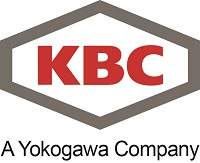KBC (A Yokogawa Company) has released its Industrial Energy Transition Manifesto, which outlines actions that process industries must take to thrive in an increasingly disruptive business environment.
The Manifesto provides deep insight into current realities, scenario predictions and how major players are adopting a range of substantially different strategies to adapt. The Manifesto outlines the actions that are available to be taken now and indicators of the pace and scale of the transition.
The Energy Transition has become an executive imperative that has been heralded as one of the most profoundly disruptive issues facing the process industries today. The process industries need to find ways of thriving amidst demands to minimise environmental impacts and deliver medium and long-term decarbonisation. There is a wide range of carbon emission reduction solutions available but establishing the optimum method or combination of tactics is far from a straightforward process.
Based on deep analysis and industry expertise, KBC’s Industrial Energy Transition Manifesto formulates two scenarios to highlight the risks to the status quo and current consensus. It also outlines the differences in actions that must be taken should alternate scenarios come to fruition. The optimum pathway changes substantially between the different transition scenarios leading to divergent business strategies.
“Inertia is probably the biggest risk of all,” says Tim Shire, KBC’s Vice President – Energy Transition. “Digitalisation of energy efficiency is a quick win, which applies in all scenarios. Beyond that, carbon mitigation will require significant planning, capex and attention”.
KBC’s Industrial Energy Transition Manifesto is available to download now from KBC’s website.

